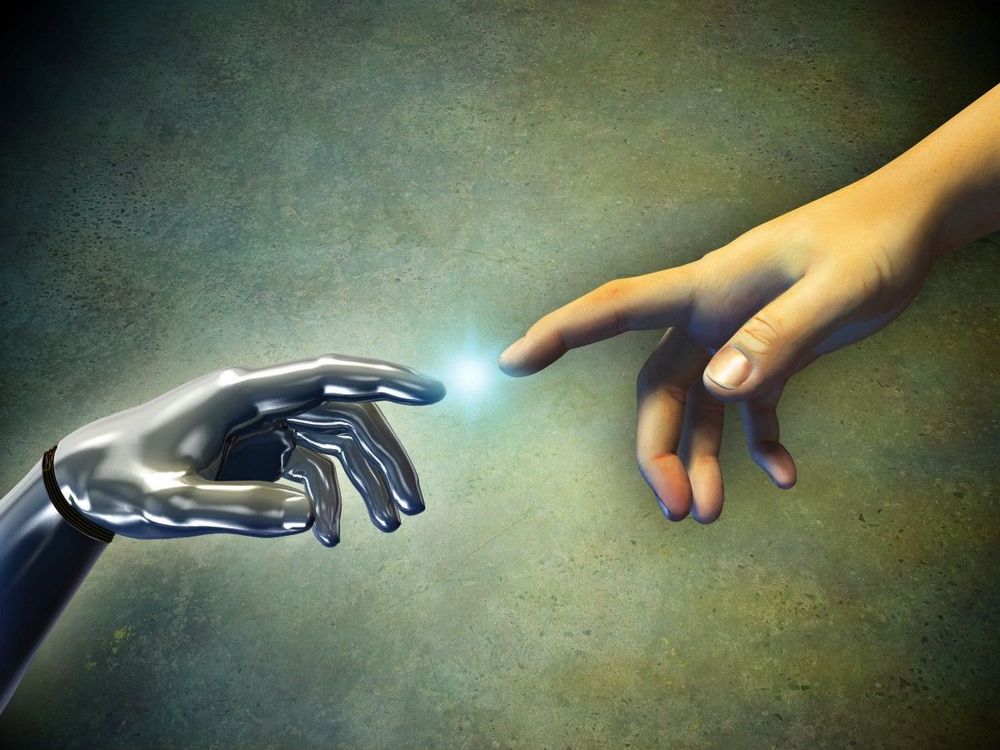Simplified molecular computing with DNA. Just mix test tubes.
Researchers have designed self-assembling DNA molecules with unprecedented reprogrammability.


In mobiles, fridges, planes – transistors are everywhere. But they often operate only within a restricted current range. LMU physicists have now developed an organic transistor that functions perfectly under both low and high currents.
Transistors are semiconductor devices that control voltage and currents in electrical circuits. To reduce economic and environmental costs, electronic devices must become smaller and more effective. This applies above all to transistors. In the field of inorganic semiconductors, dimensions below 100 nanometers are already standard. In this respect, organic semiconductors have not been able to keep up. In addition, their performance with regard to charge-carrier transport is considerably worse. But organic structures offer other advantages. They can easily be printed on an industrial scale, the material costs are lower, and they can be transparently applied to flexible surfaces.
Thomas Weitz, a professor in LMU’s Faculty of Physics and a member of the Nanosystems Initiative Munich, and his team are working intensively on the optimization of organic transistors. In their latest publication in Nature Nanotechnology, they describe the fabrication of transistors with an unusual structure, which are tiny, powerful and above all versatile. By carefully tailoring a small set of parameters during the production process, they have been able to design nanoscale devices for high or low current densities. The primary innovation lies in the use of an atypical geometry, which also facilitates assembly of the nanoscopic transistors.

It’s not just that millennials have astonishing facility with computers, taking to every cell phone and software or video game release like birds to the sky. And it is not only that they seem more mechanically adept than other generations, with fine motor skills far beyond those of older people (with their ham-handed, clunky attempts at tiny phone keyboards).
It’s that they seem to be becoming one with the technology.
Anyone who’s ever had to remove a cell phone from beneath a teenager’s bed pillow to allow for a good night’s sleep (uninterrupted by incoming texts and calls) or peel an avid gamer away from the console long enough to eat dinner knows what I’m talking about. The devices are not just tools — they are extensions of young bodies and minds. In fact, according to a recent Nielsen survey, eighty-three percent of Generation Y admit to sleeping with their phones.

Researchers from the Moscow Institute of Physics and Technology teamed up with colleagues from the U.S. and Switzerland and returned the state of a quantum computer a fraction of a second into the past. They also calculated the probability that an electron in empty interstellar space will spontaneously travel back into its recent past. The study is published in Scientific Reports.
“This is one in a series of papers on the possibility of violating the second law of thermodynamics. That law is closely related to the notion of the arrow of time that posits the one-way direction of time from the past to the future,” said the study’s lead author Gordey Lesovik, who heads the Laboratory of the Physics of Quantum Information Technology at MIPT.
“We began by describing a so-called local perpetual motion machine of the second kind. Then, in December, we published a paper that discusses the violation of the second law via a device called a Maxwell’s demon,” Lesovik said. “The most recent paper approaches the same problem from a third angle: We have artificially created a state that evolves in a direction opposite to that of the thermodynamic arrow of time.”

Last year, the Japan Transhumanist Association, a general incorporated group that aims to promote transhumanism in Japan, used Twitter to solicit volunteers for free chip implants. More than 20,000 people applied, and 20 are currently being prepared for the procedure.
With microchip implants, humankind has taken a step toward what future-minded experts predict will be a world filled with cyborgs, but Japan lags behind other countries in this regard.
The microchips inserted under the skin are currently limited to such tasks as opening doors and paying for small items, like drinks.
However, Yuichiro Okamoto, a professor of philosophy at Tamagawa University who is well-versed on the ideological background of science and technology, says the implants are just the beginning of “transhumanism,” the theory that science can allow humans to evolve beyond their current physical and mental limitations.

Time: it’s constantly running out and we never have enough of it. Some say it’s an illusion, some say it flies like an arrow. Well, this arrow of time is a big headache in physics. Why does time have a particular direction? And can such a direction be reversed?
A new study, published in Scientific Reports, is providing an important point of discussion on the subject. An international team of researchers has constructed a time-reversal program on a quantum computer, in an experiment that has huge implications for our understanding of quantum computing. Their approach also revealed something rather important: the time-reversal operation is so complex that it is extremely improbable, maybe impossible, for it to happen spontaneously in nature.
As far as laws of physics go, in many cases, there’s nothing to stop us going forward and backward in time. In certain quantum systems it is possible to create a time-reversal operation. Here, the team crafted a thought experiment based on a realistic scenario.

We’re used to the security risks posed by someone hacking into our computers, tablets, and smartphones, but what about pacemakers and other implanted medical devices? To help prevent possible murder-by-hacker, engineers at Purdue University have come up with a watch-like device that turns the human body into its own network as a way to keep personal technology private.
Quantum computers need to preserve quantum information for a long time to be able to crack important problems faster than a normal computer. Energy losses take the state of the qubit from one to zero, destroying stored quantum information at the same time. Consequently, scientists all over the globe have traditionally worked to remove all sources of energy loss—or dissipation—from these machines.
Dr. Mikko Mottonen from Aalto University and his research team have taken a different approach. “Years ago, we realized that quantum computers actually need dissipation to operate efficiently. The trick is to have it only when you need it,” he explains.
In their paper to be published on 11 March 2019 in Nature Physics, scientists from Aalto University and the University of Oulu demonstrate that they can increase the dissipation rate by a factor of thousand in a high-quality superconducting resonator on demand—such resonators are used in prototype quantum computers.